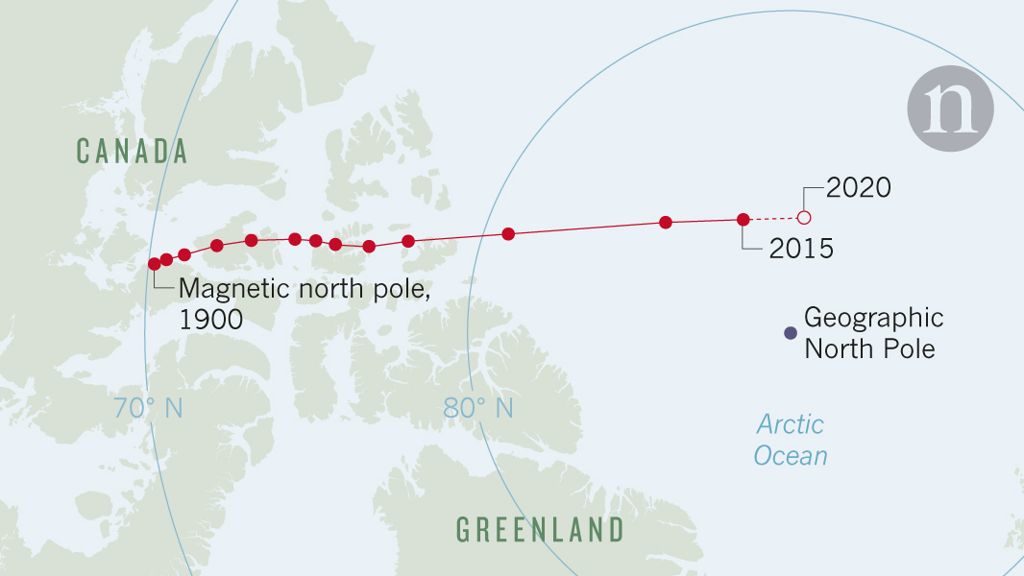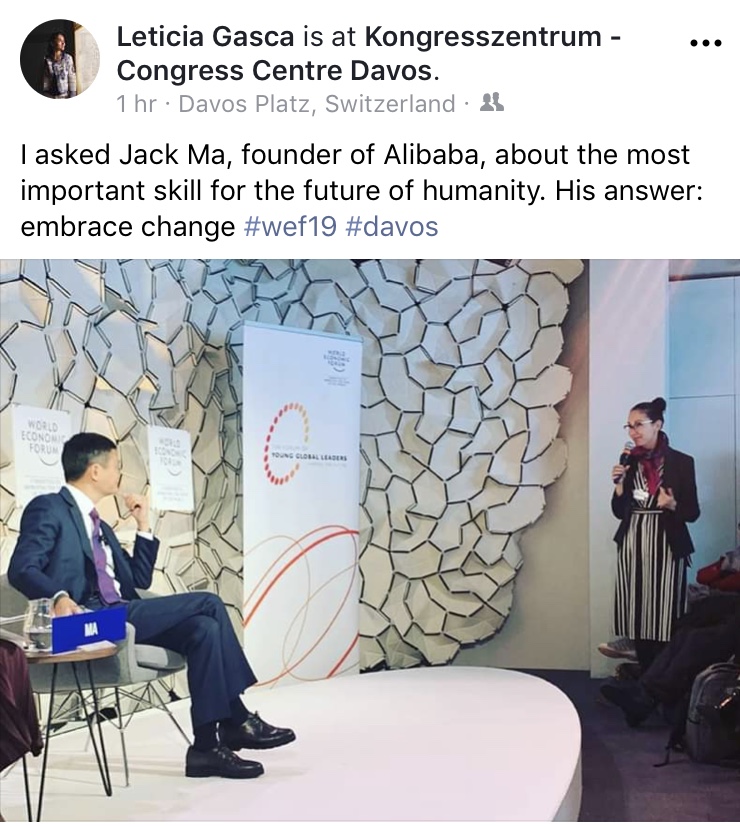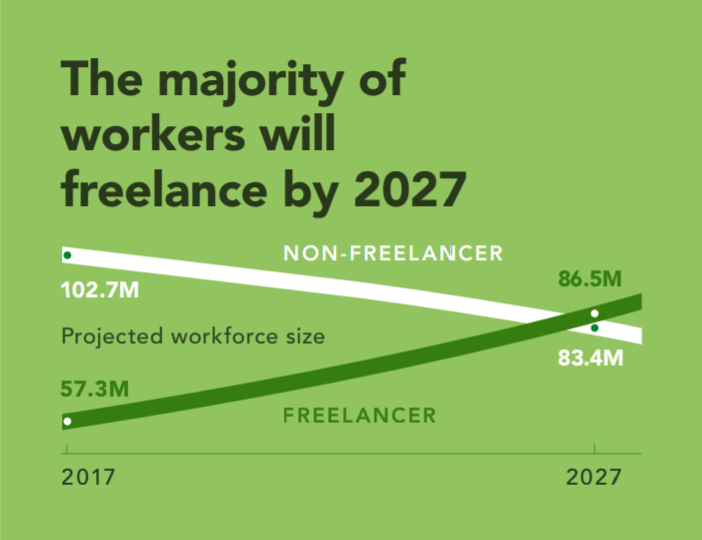By: Michael Youngblood, Unsettled Co-founder
In 2016 I gave a TED talk based on the principles of navigating through life by knowing the difference between your true north, and the magnetic pull of the countless choices and societal pressure as your path unfolds. Just like in navigation, the trick is knowing the difference between true north (the physical north pole on our planet) and what’s known as earth’s magnetic north pole, which is where a compass points based on the earth’s iron core.
The magnetic pole is always on a slow move, and scientists track its movement every 10 years. The most recent report came out in early February, and it turns out that our magnetic north pole is moving faster than at any point in recorded history.

Source: World Data Center for Geomagnetism/Kyoto Univ.
It’s throwing off GPS systems, airports are having to rename runways, and it may even affect wildlife, such as migratory birds and sea turtles, who use the earth’s magnetic field to guide them thousands of miles.
What happens when even our compass bearings are changing faster than ever?
This is what the world looks like today. We have mapped every point on the earth’s surface, but our biggest obstacle today may be navigating change itself. Our bearings and waypoints from the 20th century are changing. The world is more unsettled than ever. Even with the best knowledge and guidance, getting from point A to point B has never been so shifty. In one way or another, we are all navigating through uncertainty.
Why Navigating Uncertainty is the Most Important Skill For Humanity
A friend of mine, the founder of FuckUp Nights, was at this year’s World Economic Forum, and she had the chance to ask Jack Ma, the founder of Alibaba, who has transitioned from being an English teacher to one of the most successful entrepreneurs in the world (and back to teaching recently), “What’s the most important skill for humanity today?”

Source: Leticia Gasca
A woman who founded an institute to celebrate failure — the unsuccessful attempt at embracing uncertainty — asked a man who might have had the most successful professional transition in history what’s the most important skill for humanity and his answer was “embrace change”.
Whether you are navigating through the natural world, career paths, or difficult times in life, the answer is the same.
Those who learn to navigate uncertainty will excel in the 21st century.
Three Trends for How Uncertainty will Impact Your Career
1) The idea of a linear career path is crumbling before us
The average job tenure is shortening. Princeton economist Henry Farber has studied this and has found that while employment levels have been rising steadily for decades, the nature of how we work is changing underneath us, concluding that, “workers today should not look forward to the same type of career with one firm experienced by their parents.” Regardless of industry or path, the worker of today is much less secure, more mobile, and feels the effects of change more frequently throughout his life.
This has so many implications. Your ability to successfully navigate these transitions between jobs may be more important than the actual jobs you have; the journey is greater than the individual stops along the way. As your career evolves, you’ll need to make sure that the arc of your journey points towards your true north and you’ll need to be able to spot the signs for when you’re off track.
2) The nature of how we work is flipping (in 2027)
Do you hold a college degree in freelancing, the ability to start, manage, and market your independent business based on your unique skills?
Maybe you should. According to one of the most comprehensive studies of the independent workforce in the US, nearly 50% of millennials working today are already freelancing, and more than a third of the overall workforce. By 2027, there may be more people working freelance than in traditional, single income jobs.

Source: www.upwork.com
Those who embrace working freelance are more likely than their non-freelance peers to be enrolled in education or reskilling as they go through their careers. They are building multiple revenue streams. They have already embraced the competitive nature of this new workforce: it’s based on you. In the short term, it’s not an easy path — there’s more uncertainty in freelancing than in a steady job — but it’s where the majority of us will be in a few years.
Even some of the world’s leading universities are acknowledging this change as so significant that they are redesigning their entire alumni association. For instance, the University of Michigan, Ross School of Business is now offering their alumni lifetime, tuition-free access to executive education to keep them sharp across their ever-changing careers. How will you adapt to this amount of change?
3) The search for meaning in work
We need meaning in uncertain times, and millennials are searching for meaning in their work like no other generation before. In a recent survey on the subject, researchers found that 9 out of 10 employees are willing to trade their income for more meaning at work. Finding meaning in our work has become a measurable currency that we are willing to trade for. For workers today, the more successful we are at finding meaningful work, the better we will be at navigating uncertainty.
Our Future
We’re all navigating something today. Transitions. Relationships. Freelance work. Nonlinear career paths. Staying relevant in the workplace. There’s less certainty in our lives than ever before. Navigating uncertainty is a skillset — one that can be learned, practiced and improved upon. In the coming years, you’ll see more uncertainty in our lives and in the world, and you’ll likely see more of this type of deep work on Unsettled’s retreats.

Join us in Costa Rica this October as we disconnect and study the unknown together.
Unsettled is a global community for those who live and work differently.
Growth | Meaning | Adventure

0 Comments